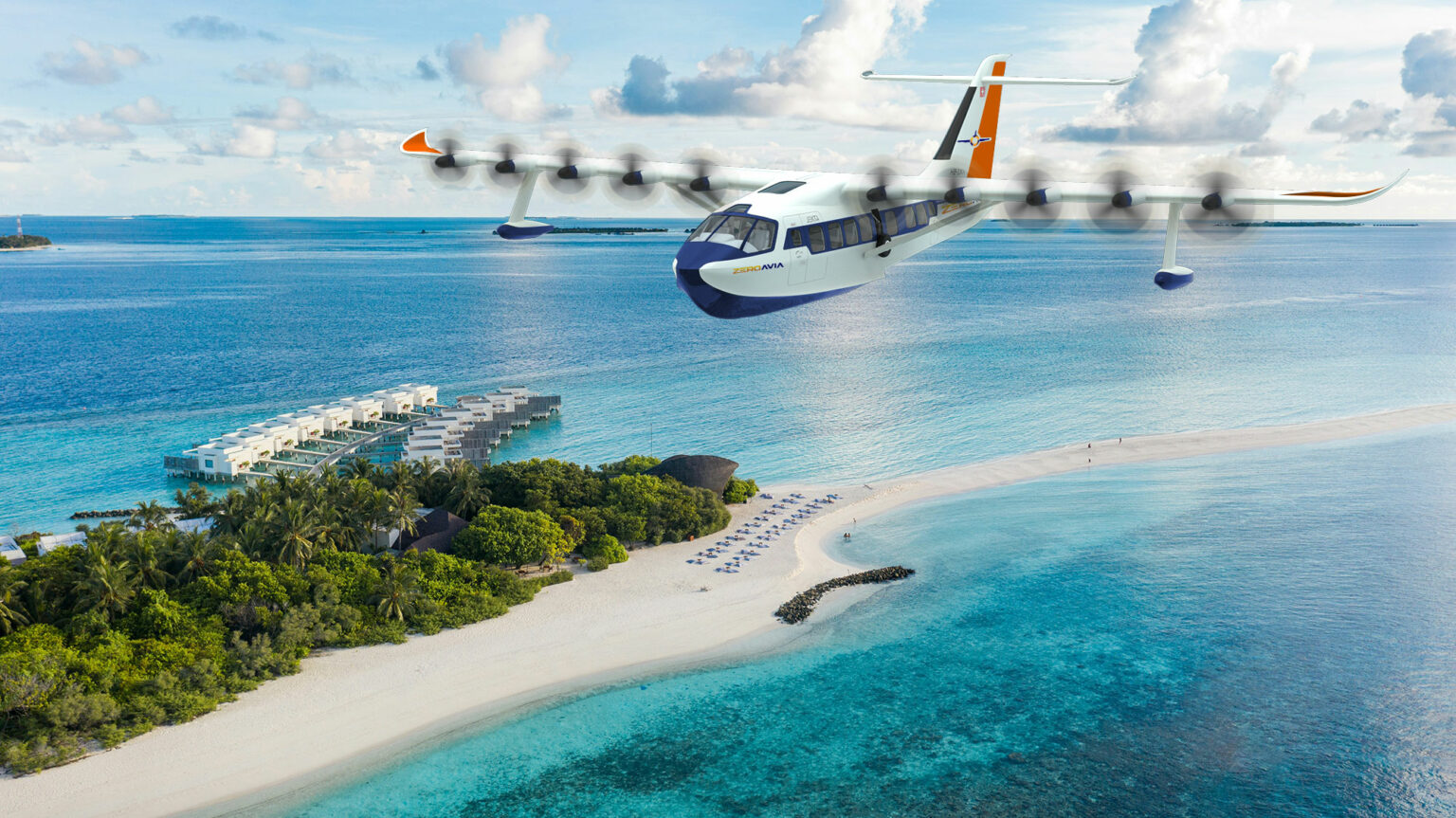JEKTA, a Swiss developer of the PHA-ZE 100 amphibious aircraft, is collaborating with ZeroAvia to integrate hydrogen fuel cell power generation systems (PGS) into its electric amphibious aircraft design.
This partnership aims to explore the potential of hydrogen fuel cells as an alternative to battery power, promising increased range and payload for the PHA-ZE 100.
The integration of ZeroAvia’s fuel cell technology is anticipated to extend the aircraft’s range up to 600 km and increase its payload by one tonne. While this represents a significant enhancement, it is crucial to compare these projections with industry benchmarks and existing aircraft performance standards. The actual implementation and testing phases will be essential to validate these claims and assess their feasibility in real-world conditions.
Hydrogen fuel cells promise lower operating and maintenance costs, with a lifespan of up to 20,000 hours. However, the economic viability of this technology must be weighed against the current costs and infrastructure requirements of hydrogen production and refueling. Additionally, the environmental benefits of hydrogen, touted as a zero-emission fuel, depend heavily on the source of hydrogen production, which must be predominantly green to ensure a true reduction in carbon footprint.
The cooperation between JEKTA and ZeroAvia focuses on developing and certifying an integrated PGS, which includes not only the fuel cells but also inverters, electronic components, and hydrogen storage systems. The success of this partnership hinges on seamless integration and rigorous testing to meet safety and performance standards set by aviation authorities.
ZeroAvia’s established market position, with secure financing and existing customer commitments, influenced JEKTA’s decision to collaborate. While ZeroAvia’s advancements in hydrogen-electric propulsion are notable, the effectiveness of their integration into JEKTA’s amphibious aircraft will be a critical factor in determining the success of this initiative.
ZeroAvia’s involvement in global hydrogen infrastructure projects and partnerships with airports highlights the broader industry movement towards hydrogen adoption. However, the development of a comprehensive hydrogen refueling ecosystem and on-site hydrogen generation capabilities are essential to support the widespread use of hydrogen-powered aircraft. The collaboration must address these logistical challenges to ensure the viability and scalability of hydrogen propulsion in the aviation sector.
The resurgence in the seaplane market presents a unique opportunity for zero-emission amphibious flights. Hydrogen-electric propulsion could play a pivotal role in this niche market, offering an environmentally friendly alternative to traditional seaplanes. Nonetheless, the environmental impact of hydrogen production and the practicality of implementing such technology on a large scale remain areas requiring thorough investigation.
